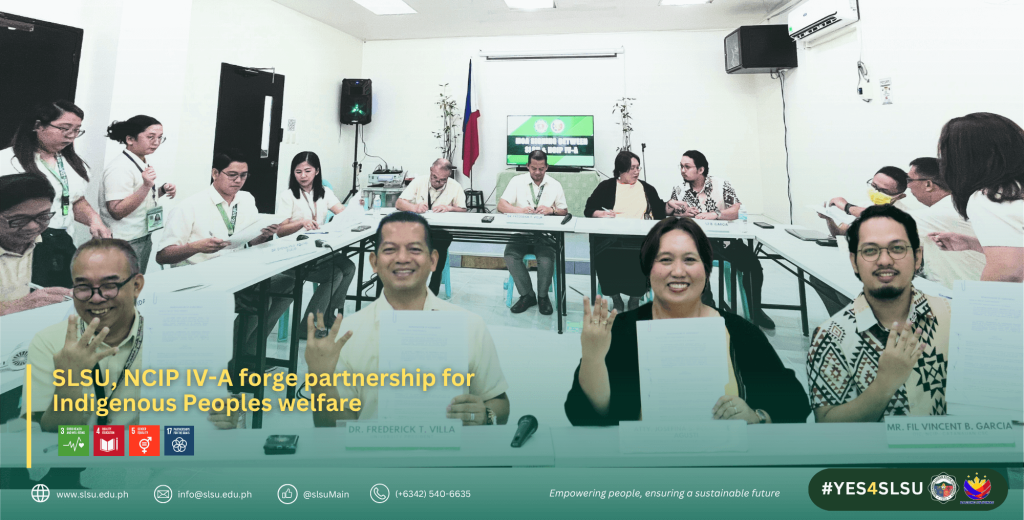To support the welfare of Indigenous students, Southern Luzon State University (SLSU) and the National Commission on Indigenous Peoples (NCIP) Calabarzon have strengthened their partnership through a renewed commitment to inclusive education and collaboration.
Through a recently signed agreement, both institutions will work together on programs focused on education, research, community engagement, gender equality, and the preservation of Indigenous culture.
SLSU President Dr. Frederick T. Villa expressed his full support for Indigenous students and the university’s collaboration with NCIP Calabarzon.
“We will provide all the help we can to our Indigenous communities such as food and other basic needs including support for gender and development programs,” Villa said.
NCIP Calabarzon Regional Director Atty. Josefina S. Rodriguez Agustin also welcomed the partnership, highlighting its role in advancing inclusive education among Indigenous youth.
“This partnership marks a significant step toward expanding educational opportunities and support systems for Indigenous peoples,” Agustin said.
Under the partnership, SLSU will provide technical support, conduct trainings, and mobilize faculty and students to assist in implementing community projects. NCIP IV A will identify partner communities, coordinate project implementation, and ensure that programs align with the needs of Indigenous peoples and national policies.
NCIP Calabarzon continues to collaborate with academic institutions across the region to expand the reach of education and development in Indigenous communities.
Prior to partnering with SLSU, NCIP Calabarzon also established a similar collaboration with St. Dominic College of Asia in Cavite.
“The goal of our collaboration with academic institutions is to broaden access to education and uplift Indigenous communities,” Agustin added.
She emphasized that support for students, research, and sustainable development programs remains a key focus of these partnerships. (Ruel Orinday, PIA)


